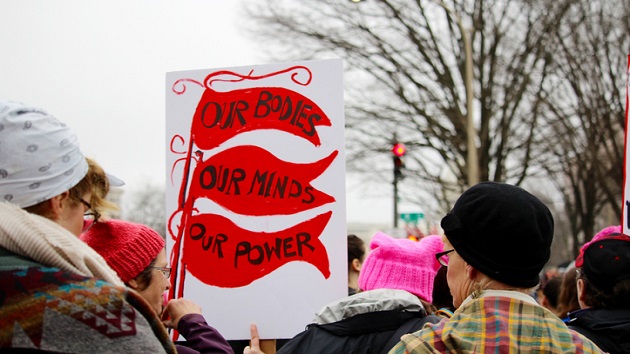(NORTH CAROLINA) — North Carolina now prohibits abortions after 12 weeks of pregnancy, bringing its limit down from 20 weeks.
This comes despite a lawsuit filed by Planned Parenthood and Dr. Beverly Gray, an abortion provider, challenging the legality of the ban, which requested a temporary restraining order on the ban before it went into effect Saturday.
The judge issued a ruling allowing most of the ban to go into effect, with the exception of one rule that would have required physicians prescribing medication abortions to document the pregnancy in their medical chart, according to the order. The temporary restraining order will remain in effect until July 14, as litigation continues.
Another provision, which requires sexual assault survivors to obtain an abortion in a hospital after 12-weeks of pregnancy will not go into effect until Oct. 1, according to Planned Parenthood.
In response to the suit, the legislature passed a bill clarifying some provisions that are at the center of the lawsuit. This includes allowing abortion pills to be prescribed beyond the 10-week limit that the ban had originally established and that providers cannot be prosecuted for providing legal abortions.
“Our legal challenge forced General Assembly leadership to clean up their mess of a bill, but we never should have had to sue to get clarity on how to comply with this law. Planned Parenthood South Atlantic remains committed to providing abortion care to as many people as possible within the unjust and inhumane confines of this abortion ban, and we encourage anyone in need of abortion care to contact us as soon as possible for help navigating this new reality,” Jenny Black, the president & CEO of Planned Parenthood South Atlantic, said in a statement Friday.
The North Carolina Legislature’s Republican supermajority overrode the Democratic governor’s veto of an abortion ban, passing the 12-week ban in May. The Republicans garnered a supermajority after a lawmaker switched parties less than six months after being elected into office as a Democrat.
The new ban will require abortion providers to give a state-mandated script about the risk of abortions 72 hours before the appointment.
The ban permits exceptions for cases of rape and incest up to 20 weeks of pregnancy and fatal or life-limiting fetal anomalies up to 24 weeks of pregnancy. It also permits abortions for ectopic pregnancies and to save the life of the mother.
Any abortions performed in accordance with the exceptions permitted by the ban are required to be reported to the state’s Department of Health. The report must include a record of evidence explaining why the abortion care is permitted under the exceptions.
North Carolina is a key point of abortion access for women in the South who live in states where nearly all abortions have ceased since Roe v. Wade was overturned a year ago, ending federal protections for abortion rights.
North Carolina saw the third-largest increase — behind Florida and Illinois — in the total number of abortions provided by a clinician during the nine-month period after Roe was overturned, according to data collected by WeCount.
Access to abortion in Florida is also at risk as the state’s Supreme Court examines the legality of a 15-week ban. If the court upholds the ban, a separate law that implements a six-week abortion ban will go into effect.
In the last year, 15 states have ceased nearly all abortion services.
Copyright © 2023, ABC Audio. All rights reserved.












